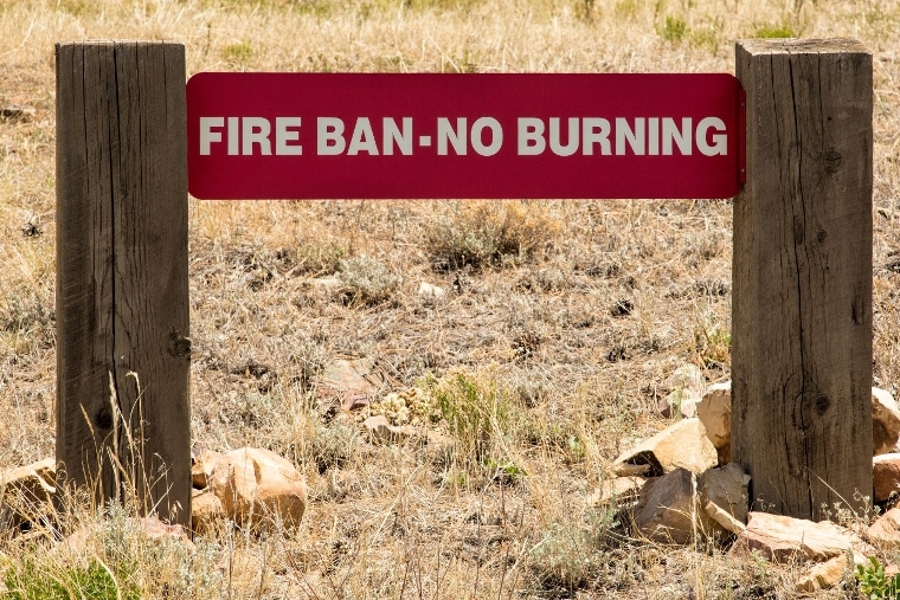STATE FIRE MARSHAL ANSWERS OPEN BURNING AND BURN BAN QUESTIONS AFTER DROUGHT WATCH ISSUED

State of Maryland - After the Maryland Department of the Environment's recent call urging citizens and businesses in large parts of the state to voluntarily reduce their water usage as a drought watch has been issued, the Office of the State Fire Marshal is reminding Marylanders of safety and jurisdictional requirements when burning outdoors.
The drought watch issued for western Maryland is based on lower-than-normal stream flows and groundwater levels for this time of year. During a drought watch, MDE increases oversight of water supply conditions and encourages voluntary water conservation practices. No mandatory water use restrictions have been issued.
The affected region includes Garrett, Allegany, and Washington counties. A drought watch declared earlier this month for eastern Maryland remains in effect.
Open-air burning is defined as a fire in which any material is burned in the open or in a receptacle other than a furnace, incinerator, or other equipment connected to a stack or chimney. It also includes other fires, such as campfires.
The Maryland Department of Natural Resources enforces open-air burning regulations. Violations carry fines up to $1000 and/or one year in prison. The landowner can be charged with all the costs of extinguishing the fire. Even small campfires can cause wildfires if they are not fully extinguished. Soak the coals with lots of water and ensure they are out cold!
"Marylanders need to use caution when burning outdoors. Being responsible, attentive, and following established guidelines provided by local authorities can make a significant difference," stated Acting State Fire Marshal Jason M. Mowbray.
Alternatives to open-air burning include composting, disposal at a local landfill where the yard debris can be turned into mulch, or periodic curb-side pick-up by your regular trash collector (where available).
Tips for open-air burning:
- Don't burn on windy days.
- Have hand tools and a ready water supply on-site.
- Never leave the fire unattended.
- Clear the area around the site for a minimum of ten feet.
- Burn at a safe distance from your home, shed, or other structures.
- Never use gasoline! Gasoline fumes can ignite and cause serious injury and possible death.
- Check your local and state regulations before burning.
- Hazardous items are never allowed to be burned. Proper disposal of hazardous items such as tires, plastics, aerosol cans, oil, etc., can be disposed of through means provided by your local government.


